As a devoted cat parent, you’ve likely experienced those pleading eyes at the dinner table. Your feline friend, with a hopeful meow, seems to be asking, “Can I have a bite of that delicious human food?” While sharing can be a loving gesture, it’s crucial to know what human foods are safe for your cat to eat, especially on a more regular basis. Beyond just safe, you might also be looking for delicious and healthy treats that offer genuine health benefits for your feline companion. If you’re curious about What Human Food Can Cats Eat Everyday or are thinking about creating homemade cat treats, this guide from Solcat.net (building upon insights from Sploot Veterinary Care) will explore the safest and healthiest human foods that can be part of your cat’s daily treat routine.
Important Note: Remember that some of these cat-friendly human foods can also be used as tempting cat food toppers to encourage fussy eaters to enjoy their meals.
Understanding Your Cat’s Dietary Needs: Obligate Carnivores and Potential Allergies
Before we delve into the list of human foods that are safe for cats to eat everyday, it’s essential to understand some fundamental aspects of feline nutrition, including their nature as obligate carnivores and the possibility of food allergies.
Why Cats Are Obligate Carnivores
Cats are classified as obligate carnivores, meaning their bodies are specifically designed to thrive on a diet primarily composed of animal flesh. Unlike omnivores like dogs and humans, cats have unique nutritional requirements that can only be met by consuming animal-based proteins. This is because they need certain nutrients, such as taurine, arachidonic acid, and vitamin A, which are found naturally in animal tissues. Furthermore, their digestive systems are not equipped to efficiently process plant matter due to their inability to break down cellulose effectively.
Being obligate carnivores has significant implications for a cat’s diet:
- Natural aversion to plants: Cats are not naturally inclined to eat fruits or vegetables. In fact, many cats will instinctively reject them, particularly when raw.
- Plant-based foods require preparation: While cats primarily need meat, certain properly prepared vegetables and fruits can offer some health benefits. Some high-quality commercial cat foods even include vegetables in carefully controlled amounts.
Key Preparation Tip: When incorporating plant-based items from our list into your cat’s treat routine, cooking and pureeing vegetables is crucial. This process helps break down cellulose, making them easier for cats to digest and absorb nutrients. This recommendation applies to cat-safe fruits like pumpkin and peas as well.
It’s also vital to ensure that any homemade pureed veggie or fruit treats are kept simple and bland. Avoid commercially prepared pureed foods not specifically designed for cats, as they may contain harmful ingredients like garlic, onions, shallots, and scallions, which are toxic to felines.
Recognizing Food Allergies in Cats
While meat forms the cornerstone of a cat’s diet, it’s important to be aware that some cats can develop food allergies to certain types of protein. In fact, common feline food allergens include:
- Beef
- Fish (including seafood)
- Eggs
- Chicken or turkey
- Dairy products (note: feline dairy allergy is distinct from lactose intolerance)
Understanding that cats are obligate carnivores and acknowledging the possibility of food allergies empowers pet parents to make informed choices when selecting healthy and safe treats for their feline companions. With this knowledge in mind, let’s explore our top recommendations for human foods that can be healthy treats for cats.
Top Human Foods Cats Can Enjoy Everyday (In Moderation as Treats)
This list highlights human foods that are generally safe and healthy for cats when given in moderation as occasional treats, complementing their balanced cat food diet.
1. Cooked, Unseasoned Chicken or Turkey
Kicking off our list with top-tier protein sources: cooked, unseasoned chicken and turkey.
Cooked, unseasoned chicken or turkey are excellent sources of lean protein for cats. Beyond protein, these meats provide essential nutrients like vitamin B6, selenium, phosphorus, and Omega-6 fatty acids. Chicken and turkey are also favored for their lower calorie content compared to beef, making them a popular ingredient in many commercial cat foods.
While turkey is often seen as a chicken alternative, the nutritional differences are minimal. However, chicken slightly edges out turkey in protein content per ounce, offering a slight protein boost.
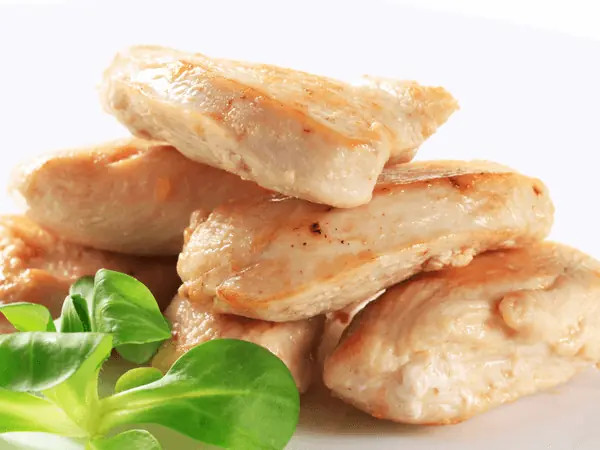 Close up of cooked, unseasoned chicken, the healthiest human food that cats can eat
Close up of cooked, unseasoned chicken, the healthiest human food that cats can eat
2. Cooked, Unseasoned Beef
Cooked, unseasoned beef provides another rich source of protein for cats. Beef is also packed with beneficial vitamin A, vitamin B, and vitamin C. These nutritional benefits make beef a valuable ingredient sometimes found in commercial cat food formulations.
3. Cooked, Unseasoned Fish
Cooked, unseasoned fish is a treat many cats find irresistible. Fish offers both protein and omega-3 fatty acids, which are vital for maintaining a healthy coat and skin in cats. Fish-based treats are often a favorite among feline companions.
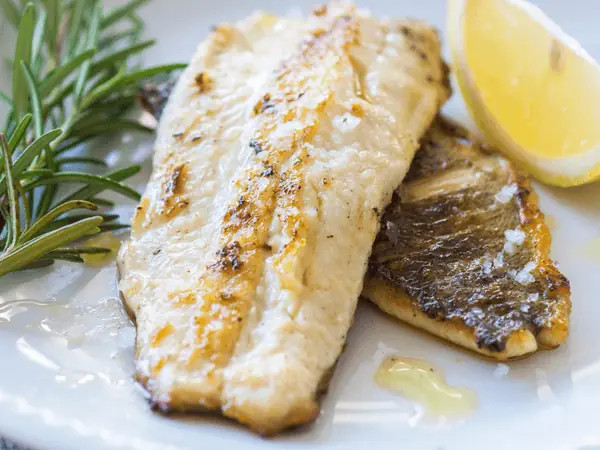 Close up of cooked, unseasoned fish, the healthiest human food that cats can eat
Close up of cooked, unseasoned fish, the healthiest human food that cats can eat
4. Cooked, Unseasoned Eggs
Whether scrambled or hard-boiled, cooked eggs can be a nutritious treat to share with your cat. Eggs are included in our list of healthy human foods for cats because they are excellent sources of protein, vitamin D, selenium, and riboflavin.
5. Cooked, Pureed Pumpkin
Moving into the realm of fruits on our list of healthy people food for cats, we have pumpkin. Cooked, pureed pumpkin, when given in moderation, can be very beneficial for a cat’s digestion. Pumpkin is particularly useful for cats experiencing constipation or diarrhea.
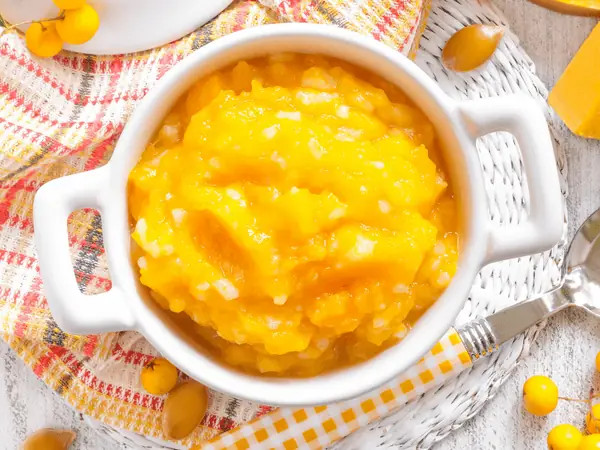 A bowl of cooked pureed pumpkin, a very healthy human food that cats can eat
A bowl of cooked pureed pumpkin, a very healthy human food that cats can eat
6. Cooked, Pureed Broccoli
Next on our list of healthy foods for cats is broccoli. Cooked, pureed broccoli is a safe and healthy treat, providing vitamin C, carotenoids, and dietary fiber. Broccoli is also a good source of antioxidants for cats.
7. Cooked, Pureed Green Beans
While most cats aren’t naturally drawn to greens, if your cat enjoys green beans, they can be a healthy addition to their treat repertoire. Cooked, pureed green beans are low in calories and offer a good source of fiber. The high fiber content in green beans can aid in resolving certain digestive issues. They are also a source of calcium, potassium, and iron.
8. Cooked, Pureed Peas
Continuing our vegetable list, pureed peas are another healthy option. Cooked, pureed peas are rich in vitamins and minerals for cats, including vitamin C, vitamin A, and potassium.
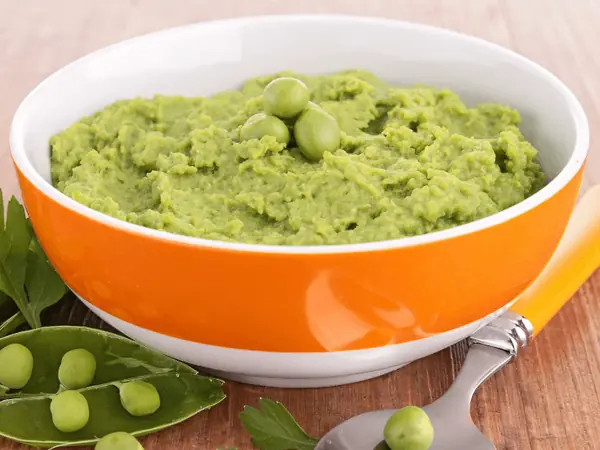 A close up of cooked, pureed peas, one of the most healthy food for cats
A close up of cooked, pureed peas, one of the most healthy food for cats
9. Cooked, Pureed Carrots
Cooked and pureed carrots offer fiber, vitamin A, and beta-carotene to cats. As a healthy vegetable treat, cooked and pureed carrots can contribute to a cat’s vision, skin health, and digestive function.
10. Cooked, Pureed Spinach
Cooked and pureed spinach is another safe and healthy vegetable treat. While it might not turn your cat into Popeye, spinach provides valuable fiber, vitamin A, vitamin K, vitamin C, and potassium.
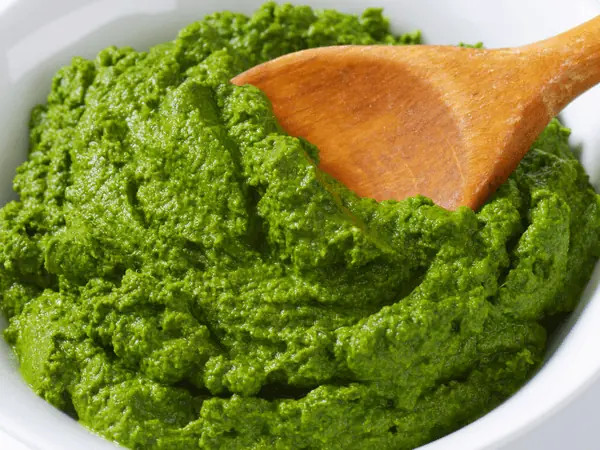 A close up of cooked, pureed spinach, one of the most healthy human food that cats can eat
A close up of cooked, pureed spinach, one of the most healthy human food that cats can eat
Final Thoughts on Incorporating Human Food into Your Cat’s Treat Routine
We hope this guide to healthy human foods for cats has been informative. To summarize, remember that while these options can be healthy treats, cats are obligate carnivores. Although they might enjoy the listed vegetables, their primary dietary focus must always be animal protein. These human food treats are not intended to replace a nutritionally complete, high-quality commercial cat food diet. They are meant to be supplemental and given in moderation.
Looking for vet-recommended cat food and treats? Explore solcat.net’s top picks for trusted online pet stores offering vet-preferred nutrition options!
For any specific questions or concerns about your cat’s diet and nutritional needs, always consult with your veterinarian. They can provide personalized advice tailored to your cat’s individual health and dietary requirements.
Quick Guide: Don’t forget to check out our cheat sheet summarizing the healthiest people food options suitable as treats for your feline friend!
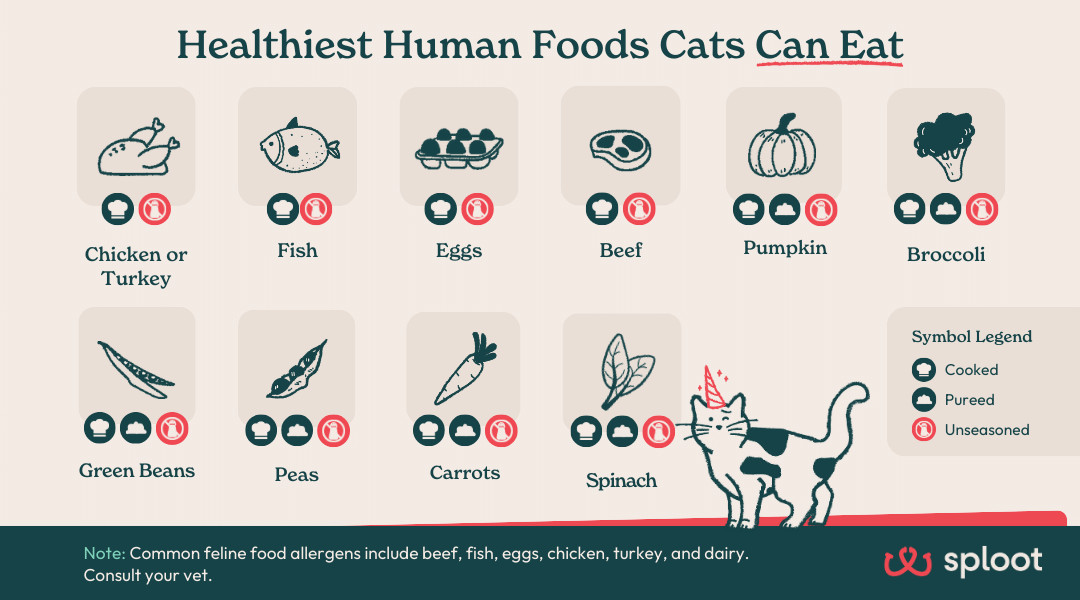 An infographic showing the healthiest people food that cats can eat or healthy food for cats
An infographic showing the healthiest people food that cats can eat or healthy food for cats
Frequently Asked Questions About Human Food for Cats
1. What human food can cats eat safely?
Cats can safely eat certain human foods in moderation as treats. As detailed above, excellent choices include cooked, unseasoned, and boneless meats like chicken, turkey, and beef, along with small servings of specific cooked vegetables, such as carrots and peas.
2. Is it okay for cats to eat dog food?
While a small amount of dog food is unlikely to harm your cat immediately, dog food is not formulated to meet the specific nutritional needs of cats. Regularly feeding dog food can lead to nutritional deficiencies and long-term health issues in cats.
3. What can I feed my cat if I’m out of cat food?
If you temporarily run out of cat food, you can offer small portions of cooked, unseasoned meat like chicken or turkey, or a plain hard-boiled egg. Ensure there are no added spices or oils. Small amounts of plain, steamed, cat-friendly vegetables, like peas or carrots, are also acceptable. If you’re considering homemade cat food as a regular alternative, consult with a veterinarian to ensure it meets all your cat’s nutritional requirements.
4. Which human foods are toxic or forbidden for cats?
Certain human foods are toxic to cats and must always be avoided. These include chocolate, onions, garlic, grapes, raisins, alcohol, caffeine, and any products containing xylitol (an artificial sweetener). For more detailed information on toxic foods for cats, please consult a veterinarian or reliable pet poison control resources.
5. What is considered the best type of cat food for indoor cats?
The best cat food for indoor cats is typically high in protein, moderate in fat, and low in carbohydrates. It should be specifically formulated for indoor cats to account for their typically lower activity levels compared to outdoor cats, helping to maintain a healthy weight. Look for cat food brands that clearly state they are designed for indoor cats.
